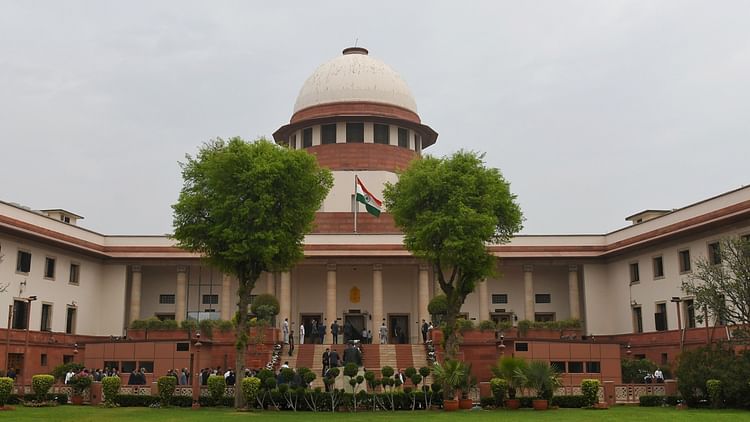In a landmark ruling that underscores the critical balance between promoting traditional medicine and safeguarding consumer rights, the Supreme Court of India has recently stayed a notification issued by the Ministry of Ayush. This notification, which sought to omit Rule 170 of the Drugs and Cosmetics Rules, 1945, had effectively opened the door for potentially misleading advertisements of Ayurvedic, Siddha, and Unani drugs.
The court’s decision, delivered on August 27, 2024, by a bench comprising Justices Hima Kohli and Sandeep Mehta, sends a resounding message that the health and well-being of citizens cannot be compromised in the pursuit of promoting traditional medicine. It reaffirms the court’s unwavering commitment to consumer protection and the importance of maintaining transparency and accountability in the healthcare industry.
A Conflict of Priorities
The Ministry of Ayush, entrusted with the development and regulation of traditional healthcare systems in India, had issued the notification with the intention of streamlining the advertising process for Ayurvedic, Siddha, and Unani drugs. However, this move inadvertently created a conflict with a previous Supreme Court order that mandated self-declarations from advertisers to curb the dissemination of misleading advertisements.
The court’s stay on the notification highlights the delicate balance that must be struck between promoting traditional medicine and protecting consumers from false or exaggerated claims. While the government is keen to encourage the use of traditional remedies, it cannot do so at the expense of consumer safety and well-being. The court’s intervention serves as a timely reminder that any attempt to dilute the regulations governing the advertising of healthcare products, whether traditional or modern, will be met with firm resistance.
The Indian Medical Association’s Crusade
The issue of misleading advertisements in the context of traditional medicine gained prominence due to a plea filed in 2022 by the Indian Medical Association (IMA). The IMA alleged a smear campaign by Patanjali and yoga guru Ramdev against the Covid vaccination drive and modern systems of medicine. This campaign, which allegedly involved spreading misinformation and casting aspersions on the efficacy of modern medicine, raised serious concerns about the potential harm that misleading advertisements can inflict on public health.
The Supreme Court’s involvement in this matter underscores the critical role it plays in upholding the principles of evidence-based medicine and protecting citizens from the dangers of misinformation. The court’s decision to stay the Ayush Ministry’s notification is a significant victory for the IMA and other proponents of scientific and transparent healthcare practices.
The Importance of Evidence-Based Medicine
While traditional medicine systems like Ayurveda, Siddha, and Unani hold a revered place in Indian culture and have been used for centuries to treat various ailments, it is imperative that their promotion and advertising are grounded in scientific evidence. The Supreme Court’s ruling reinforces the importance of evidence-based medicine, which relies on rigorous research and clinical trials to validate the efficacy and safety of medical treatments.
The court’s stance sends a clear message that any claims made about the benefits of traditional medicines must be backed by credible scientific evidence. This will help to ensure that consumers make informed choices about their healthcare and are not misled by false or exaggerated claims.
Striking a Balance
The debate surrounding traditional medicine in India is complex and multifaceted. On the one hand, there is a growing recognition of the potential benefits of traditional remedies and their role in promoting holistic health and well-being. On the other hand, there are concerns about the lack of scientific evidence to support many of the claims made about these remedies and the potential for their misuse or abuse.
The Supreme Court’s decision highlights the need for a balanced approach that respects the cultural heritage of traditional medicine while ensuring its integration with modern healthcare practices. This will require a concerted effort from all stakeholders, including the government, regulatory bodies, healthcare professionals, and the traditional medicine industry.
The Road Ahead
The Supreme Court’s stay on the Ayush Ministry’s notification is a significant development in the ongoing discourse on traditional medicine in India. It sets the stage for a more nuanced and evidence-based approach to the promotion and regulation of traditional remedies. It is a reminder that while tradition and culture are important, they cannot override the principles of scientific inquiry and consumer protection.
The court’s decision also underscores the critical role of regulatory bodies like the Central Council of Indian Medicine and the Central Council for Research in Ayurvedic Sciences in ensuring the quality and safety of traditional medicines. These bodies must work in tandem with the government and healthcare professionals to develop clear guidelines and standards for the practice and promotion of traditional medicine.
In conclusion, the Supreme Court’s intervention in this matter is a welcome move that will help to safeguard consumer rights and promote transparency in the healthcare industry. It is a step towards a more balanced and evidence-based approach to traditional medicine, one that respects its cultural heritage while upholding the principles of modern healthcare.
Soumya Smruti Sahoo is a seasoned journalist with extensive experience in both international and Indian news writing. With a sharp analytical mind and a dedication to uncovering the truth, Soumya has built a reputation for delivering in-depth, well-researched articles that provide readers with a clear understanding of complex global and domestic issues. Her work reflects a deep commitment to journalistic integrity, making her a trusted source for accurate and insightful news coverage.



